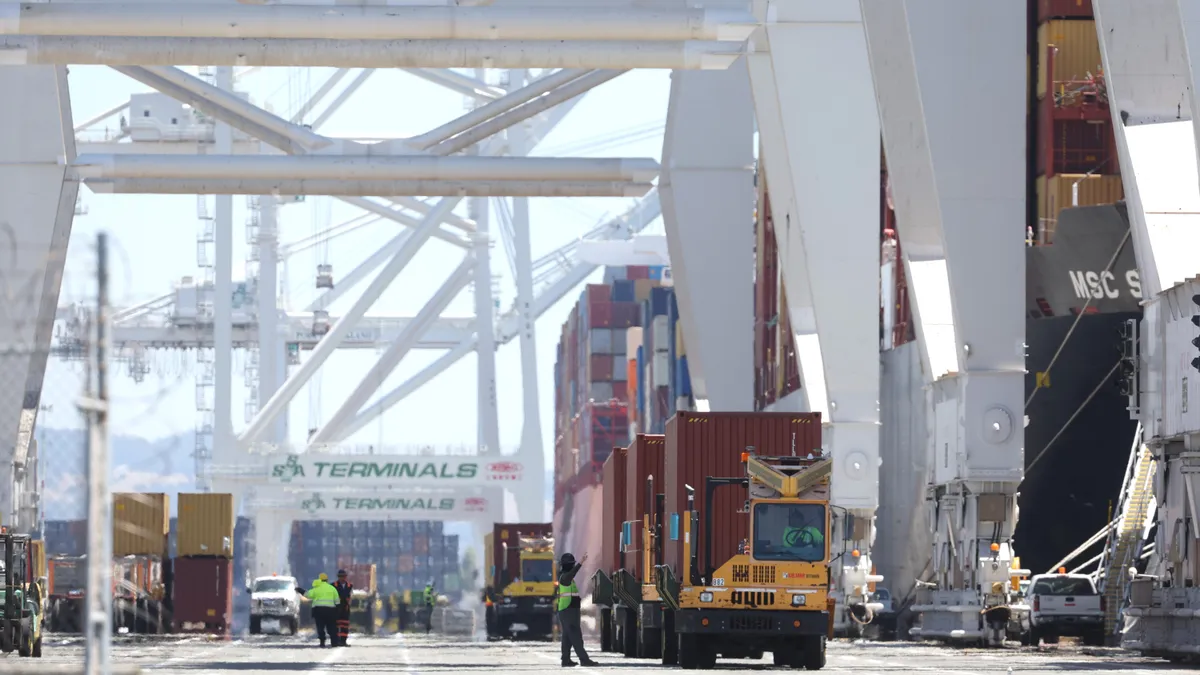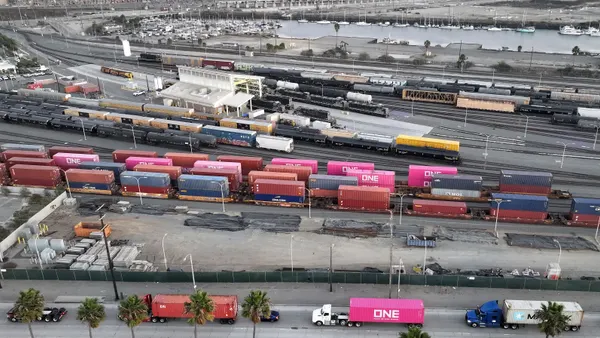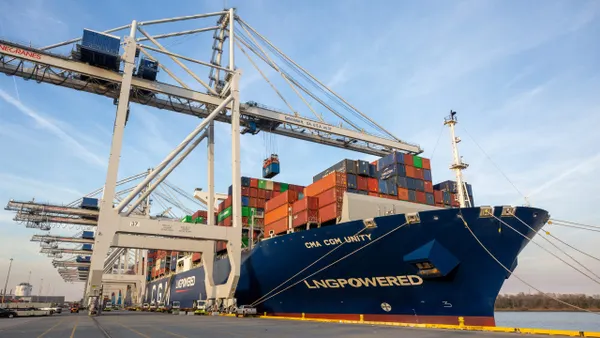Dive Brief:
- The Port of Oakland reported cargo in April dropped 7% compared to the same period a year ago due to factory and port shutdowns in China, according to a press release.
- Shanghai's lockdown has delayed U.S.-bound shipments, causing a "ripple effect" on ocean carrier scheduling and are wreaking "havoc on ocean carrier scheduling," according to a statement from the port.
- Volume from Asia has slowed, as have the number of vessels coming to the port, according to the release. "During the peak of port congestion in 2021, as many as 30 ships were waiting to enter an Oakland berth. Today containerships number from one to a few waiting to do business at the Port of Oakland."
Dive Insight:
Vessel schedules have been "thrown into disarray in China,” Port of Oakland Maritime Director Bryan Brandes said in a statement. “Most of Oakland’s business depends on the Asia-U.S. trade route.”
The port received 69 vessel calls last month, down 14% from a year ago when there were 81 calls, a representative at the Port of Oakland said in an email.
When ocean carriers make changes to their vessel schedules, costs are a factor. It comes down to carrier economics, Nathan Strang, Flexport senior trade lane manager of ocean operations, said in an email.
"What they're doing is looking at how much cargo they can load on their vessels and their vessels have certain operating costs," Strang said.
A carrier incurs costs such as fuel used for a vessel and the labor to manage the operations inside it. The carrier will look at the expected loadings and bookings and then decide on whether they keep the sailing or not, he said.
With the reduction in cargo coming out of Shanghai, some carriers aren't able to fully load a vessel. "They're looking at it and they're saying, is cargo available? If it is, I'll load if not, then then I can't load," Strang said.
Shanghai's port closures did not affect vessel utilization much, since cargo could be rerouted to other nearby ports, Ryan Clark, co-founder of Westbound Logistics Service, said in an email. But the closure did create delays at the Port of Ningbo-Zhoushan due to the added capacity that was sent there.
"Delays still occur due to not having enough man power or trucks/time to load so many extra containers during the ‘same as usual’ loading window for a vessel," Clark said.
The combination of delays, limited labor availability and production slowdowns have carriers shifting vessel calls to minimize dwell and meet schedules, Chief Commercial Officer Peter Aaro-Hansen at Green Worldwide Shipping, LLC said in an email.
"Carriers alter trade lanes to service more profitable ports, leaving essential consumer goods waiting at origin yards until space becomes available," Aaro-Hansen said.
Not all West Coast ports are facing the same impact. In early May the Port of Los Angeles said it had not seen significant volume impact in April as a result of the lockdown in Shanghai.
"There has been “no dramatic change” in the number of vessels leaving China, as vessel numbers bound for the San Pedro Bay remain “pretty consistent,” Executive Director Gene Seroka said in a media briefing.















